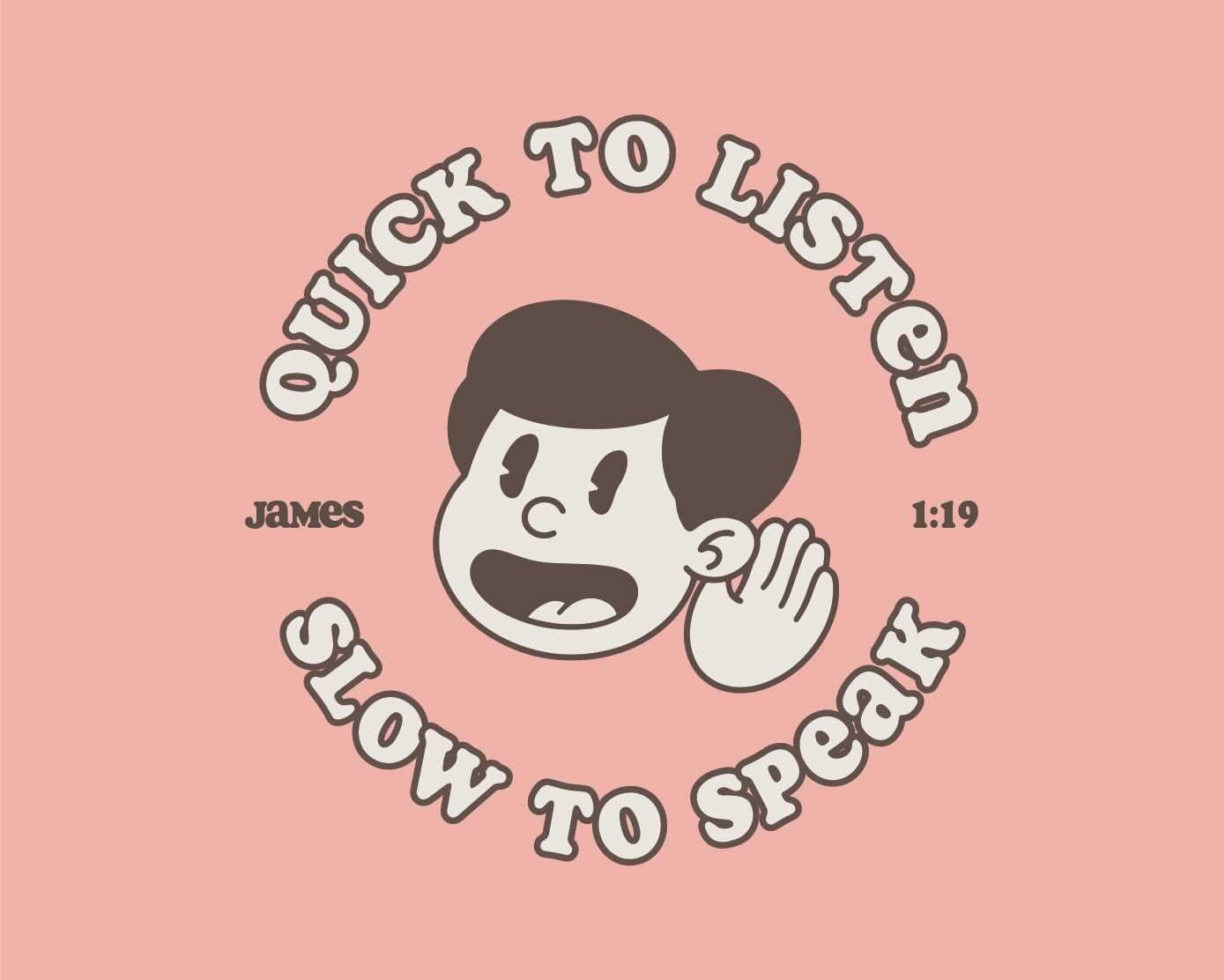![]()
Know this, my beloved brothers: let every person be quick to hear, slow to speak, slow to anger; James 1:19 (ESV)
My dear brothers and sisters, take note of this: Everyone should be quick to listen, slow to speak and slow to become angry, James 1:19 (NIV)
Recite using the acronym:
K T , M B B : L E P B Q T H , S T S , S T A ; JAMES 1:19 (ESV)
M D B A S , T N O T : E S B Q T L , S T S A S T B A , JAMES 1:19 (NIV)
Read Full Passage HERE
Dive Deeper:
I’m sure some of us have heard this verse since we were young; maybe it’s even the first lesson you learned. So, it may feel elementary. But maybe because we learned this so long ago, we feel as if we are sufficient in this area, but I’m going to challenge the opposite, that this may be one of the verses in scripture that we’ve overlooked in adulthood, a verse that we’ve been a “hearer” of but not a “doer.” I challenge you to think over the past week of your life. Have you listened more or spoken more? And by listening, I don’t mean when it’s easy or passive, tuning out or listening to gossip, but listening even when you have something to say. Listening to the silly stories your kids share, listening to the hurting friend, or listening to the suffering of your neighbor. Even being willing to ask a question that may cause you to listen even more.
Lack of listening promotes a quick response. Sufficient listening promotes a gentle response–maybe not a verbal response at all. Sometimes our brothers and sisters share stories and experiences so dark and broken that a verbal response isn’t sufficient. We must listen to know how to respond, not falling into the trap to merely “listen to respond.” If anything, this is where I tend to fall short. Listening to give my solution, but not enough to realize they may not need it. Caring more about my answer than what they may be sharing.
We must listen thoughtfully to know how to answer gently. Still, it is easier said than done to do as James says, being “slow to speak” and especially “slow to become angry.” Sometimes we do well to be quick to listen but become angry at the opinions or the lack of truth in which others speak. In these times, we must be even slower in our speaking, and when we do, to speak the truth in love. “For your anger does not produce the righteousness of God.”
It is also important to note the order in which James writes this command. It is as if one leads to the next in the natural order of our behavior. We listen, speak, and become (or don’t become) angry. In the negative version of this ordering, we are slow to listen, quick to speak, and quick to become angry. In the positive and life-giving version, we are quick to listen, slow to speak, and slow to become angry. I find it interesting that anger follows speaking rather than comes before. This suggests that sometimes words fly out of our mouths before we have given ourselves the chance to digest what the person we are speaking to has said and how we ought to think about it. Lack of listening causes an insensitive or rash response. Then, anger follows because situations escalate from our hasty words. Being slow to speak slows down our tendency to become angry. Thoughtful listening promotes an intentional and gentle response. So, the greatest gauge for thoughtful listening is your response.
Always listen, sometimes speak, and rarely become angry.



